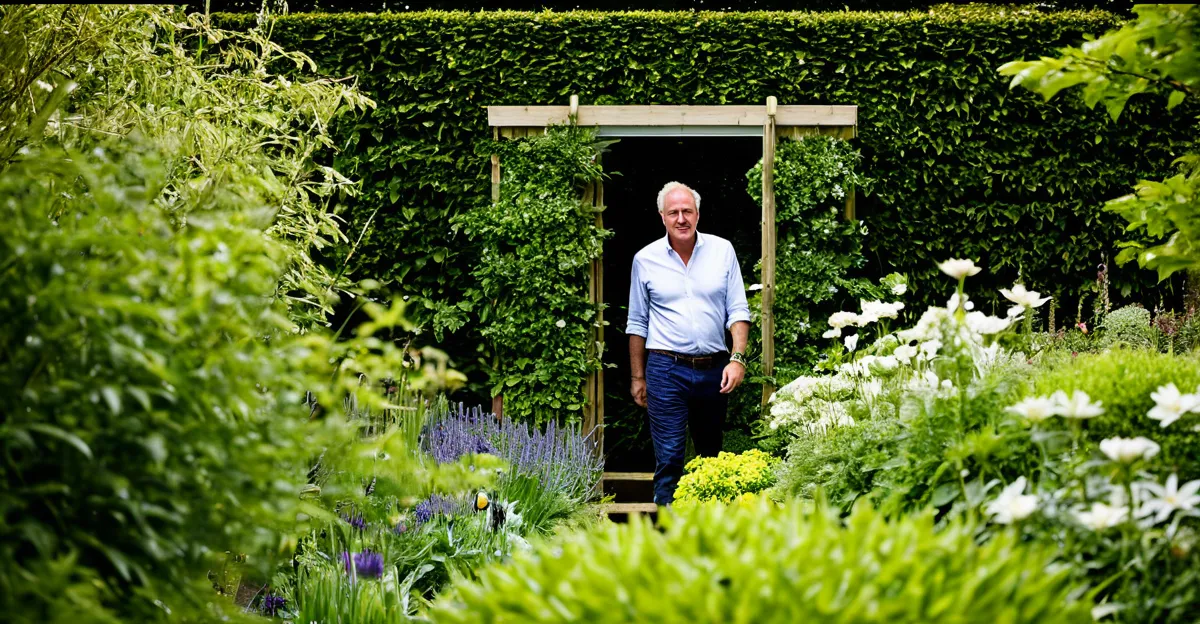Practical Ways to Improve Garden Privacy
Creating a secluded outdoor space tailored to you
When considering garden privacy solutions, it’s crucial to match methods to your garden’s unique layout and needs. Popular options for UK garden screening include using tall plants like bamboo or evergreens. These provide natural, effective barriers that also enhance your garden’s aesthetics. Alternatively, installing timber fences or trellises offers immediate privacy, shielding your outdoor area while allowing climbing plants to add charm over time.
In the same genre : How Can You Design a Tranquil Outdoor Space for Relaxation?
For long-term privacy solutions, carefully selecting slow-growing trees or reinforced hedges can create a lasting screen that blends seamlessly into your landscape. Combining both immediate and long-term strategies often yields the best results, ensuring you’re not left exposed before natural elements mature.
If space is limited, consider vertical screens or adjustable panels that can be repositioned as needed. These versatile privacy ideas support flexible use of your garden while maintaining seclusion.
Also read : How Does Sustainable Gardening Improve Home Aesthetics?
Ultimately, choosing the right mix of garden privacy solutions in the UK depends on your budget, desired privacy level, and garden style. Exploring different options helps you craft a comfortable, private outdoor retreat.
Choosing the Right Fencing for Privacy
Privacy fencing UK options vary widely, but choosing the right garden fencing depends on your needs and local regulations. Common choices for privacy fencing include wooden panels, vinyl fences, and metal screens, each offering different levels of seclusion and aesthetics. Wooden garden fencing is popular for its natural look and effectiveness in blocking views, but it requires regular maintenance to prevent weather damage. Vinyl fencing offers durability and low upkeep, ideal for busy homeowners seeking long-lasting privacy.
Understanding fence height regulations in the UK is crucial before installation. Typically, fences up to 2 meters high are allowed without planning permission. However, fences near roads or front gardens often have stricter height limits, usually around 1 meter or less, to ensure visibility and safety. Check with your local council to avoid legal issues.
Costs vary by material and size. Wooden privacy fencing ranges from £30 to £60 per linear meter, while vinyl can be £50 to £100. Consider factors like upkeep, lifespan, and the level of privacy when selecting your garden fencing to find the perfect balance for your outdoor space.
Adding Hedges and Green Barriers
Growing privacy hedges UK offers a natural, attractive way to secure your outdoor space. Opt for fast-growing hedges like Leylandii or Privet to enjoy quick coverage, ensuring privacy within a short period. For continuous greenery, choose evergreen privacy plants such as Boxwood or Holly, which maintain their foliage through all seasons.
Natural barriers outperform artificial screens by enhancing biodiversity, improving air quality, and blending seamlessly with your garden. They also provide sound insulation and require less maintenance over time. However, planting requires choosing species suited to the UK’s variable weather, including wet winters and mild summers.
To thrive, plant hedges in well-drained soil with adequate sunlight. Water regularly during establishment and mulch to retain moisture and suppress weeds. Pruning fast-growing hedges encourages bushiness, ensuring dense coverage and optimal privacy. Regular care leads to a lush, green barrier that protects your garden while enhancing its appeal and creating a calming, private atmosphere.
Installing Screening Panels and Trellises
Practical tips for garden privacy and style
When choosing garden screens UK options, consider various screening materials such as wood, metal, and PVC. Each offers different benefits: wood often provides a natural look but requires regular maintenance, while metal can be more durable with less upkeep. PVC panels are lightweight and weather-resistant, perfect for less demanding climates.
Decorative trellis panels serve both functional and aesthetic purposes. They can support climbing plants, creating a lush, green barrier that enhances privacy while adding visual interest. Integrating screens creatively—like positioning them along pathways or around seating areas—can transform your garden into a cozy retreat.
Maintenance is key. Wood screens may need sealing or painting annually, especially in damp UK weather, to prevent rot. Metal options resist rust but might require occasional touch-ups. PVC, meanwhile, generally only needs a quick wash.
By understanding the strengths and upkeep of each screening material, you can select and install garden screens UK that ensure privacy, blend with your landscape, and stand up to the elements beautifully.
Using Plants for a Stylish Natural Look
Enhancing privacy with greenery
When aiming for plants for privacy in UK gardens, selecting species suited to local climate and soil is essential. Hardy climbers like ivy, honeysuckle, and clematis thrive outdoors, providing dense coverage while adding visual appeal. Their evergreen or seasonal foliage creates year-round interest and privacy.
Vertical gardening offers a smart solution to limited space. Installing trellises or frames encourages climbing plants to grow upwards, forming a natural screen. This technique transforms plain walls and fences into lush living backdrops, enhancing any garden’s style and seclusion.
Combining planting with physical screens, such as wooden panels or metal mesh, creates a layered privacy effect. Plants soften the structures’ edges and provide additional screen density. This approach also benefits from varied textures and heights, making privacy setups not only effective but visually captivating.
Using plants for privacy thoughtfully turns outdoor spaces into peaceful retreats, balancing function and aesthetics. This strategy suits urban and suburban settings, harnessing nature’s elegance to shield your garden while boosting its charm.
Legal and Neighbour Considerations
Navigating the UK garden privacy law is essential when enhancing your outdoor space. Generally, fences or walls up to two meters high do not require planning permission. However, if you plan to build higher, permission from your local council is mandatory to avoid legal issues. Understanding boundary regulations is vital to prevent disputes. Property boundaries often depend on historical usage or deeds, so verifying these before making changes can stop conflicts.
When uncertain about boundaries, consulting a professional surveyor or accessing property records is wise. If a dispute arises, the first step is to communicate calmly with your neighbours. Approaching concerns through respectful conversation can often resolve issues without escalation. Maintaining good neighbour relations while addressing privacy needs helps foster a positive community atmosphere.
Consider discussing your privacy plans openly to ensure their comfort. This approach is part of best practices for talking to neighbours, promoting mutual understanding. Being transparent can prevent misunderstandings related to fences, hedges, or privacy screens, making the process smoother for all parties involved.
Cost Breakdown and Budgeting Tips
When considering garden privacy cost, it’s essential to weigh both upfront expenses and long-term value. Basic DIY privacy screens often start at a lower price point, making them attractive for those on a tight budget. However, materials like bamboo or fabric may require more frequent replacement, slightly increasing overall costs.
Investing in sturdier fences or trellis panels might cost more initially but offers value for money privacy by lasting longer and reducing maintenance. Balancing budget, durability, and aesthetics means deciding where to save and where to invest. For example, you might choose a reliable fence frame but customize it with economical decorative elements.
Prioritize structural components to ensure longevity, while opting for affordable accessories or plants to enhance privacy. Remember, effective planning and understanding your space needs can optimize your spending. By blending practical choices with personal style, you can achieve a private garden that feels both cozy and cost-effective without compromising on quality.
Enhancing Privacy with Style
Creating a modern garden privacy solution means combining function with design flair. Decorative screens are a fantastic way to accomplish this, offering not just seclusion but also enhancing your garden’s aesthetic. These screens come in various materials—metal, wood, or composite—allowing you to tailor the look to either a contemporary or traditional style.
To achieve seamless privacy while keeping your garden visually appealing, consider layering plants behind or around these screens. This adds texture and softness, blending natural elements with built structure. When choosing decorative screens, opt for ones with intricate patterns or unique finishes that complement your existing garden features.
Another tip is to use screens to define specific zones, such as seating or dining areas, establishing intimate, protected spots without sacrificing openness and airiness. With modern garden privacy options, you can turn a once-exposed garden into a tranquil retreat that’s both stylish and private. Using these aesthetic garden ideas ensures your outdoor space remains inviting and beautifully functional.





